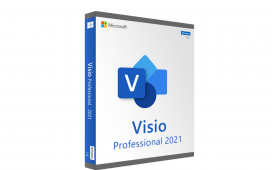
Embark Universal Interface works across Freightliner, International, Peterbilt, and Volvo trucks.
New Revolution Media
Automated truck developer Embark has launched a new Partnership Development Program (PDP) with key fleets, as well as a first-ever universal interface enabling their Automated Driving System (ADS) to be installed on any of the four major truck brands in the U.S.
There has been an avalanche of news in the truck AV space recently which shows no signs of letting up soon. Let’s take a look at what these moves by Embark mean to the larger industry.
Partnering with Leading Tech-Forward Fleets
Embark’s initial PDP participants are Werner Enterprises, Mesilla Valley Transportation, Bison Transport, and Anheuser Busch InBev. Embark says the program “will improve speed and reliability for customers, as well as safety and work-flexibility for professional truck drivers.”
Werner ranks 16th on the 2020 Transport Topics Top 100 For-Hire Carriers list. Bison Transport ranks 56th and Mesilla Valley Transportation ranks 78th. Anheuser Busch InBev ranks 61st on the parallel 2020 Top 100 Private Carriers list. Werner is by far the largest fleet of the group, with over 8,000 truck tractors.
The days of demo’ing cool truck tech to the trucking industry are in the rear view mirror. A key next step in automated trucking is for ADS developers and trucking professionals who sweat the details every day to work side by side to determine how to best apply this technology. Embark aims to refine and scale the software and support services necessary to enable carriers to own and operate Embark-equipped OEM trucks on select US freight lanes. They have two tools to do so. The Embark Driver is a per-mile software license that can safely navigate a carrier-owned, Embark-equipped truck from its origin to destination. In addition, Embark will provide carriers an autonomous fleet management solution, called Embark Guardian, that provides remote vehicle monitoring, dispatching, and access to real-time data such as weather and construction. Together, Embark Driver and Embark Guardian are intended to enable carriers to deploy and manage a fleet of autonomous trucks within their existing networks.
“Embark’s commitment to having carriers purchase and operate our autonomous trucks, while Embark provides a software subscription and support services, is a win-win because it leverages the logistical expertise of the carrier, allows the technology to scale more quickly through existing shipper-carrier relationships and enables Embark to focus on delivering a safe and reliable autonomous truck,” said Alex Rodrigues, Chief Executive Officer, and co-founder at Embark. “The learnings Embark has gained from hundreds of hauls with shippers and carriers over the years has helped us shape this new business model, and we are excited to announce it today.”
This is the first time Embark has explicitly presented their ADS as operating on a per-mile software license approach.
As part of the program, carriers will work alongside Embark to test and refine various facets of the overall operating model, including remote vehicle monitoring, vehicle maintenance procedures, teleoperations, AV dispatching rules, and transfer hub logistics. Werner Enterprises, Mesilla Valley Transportation, Bison Transport, and other leading carriers bring a nationwide network for testing and decades of operational, regulatory, and safety experience. Anheuser Busch InBev brings the perspective of a large manufacturer shipping their own product. All are known in the trucking industry as being tech-forward. In particular, Werner has established an innovation arm, Werner Edge.
“While Werner has always been a first mover in the transportation industry, we continue to invest in new technology and solutions that enrich the experience for drivers, shippers, and carriers, while optimizing the entire ecosystem,” says Werner’s Vice Chairman, President and Chief Executive Officer Derek Leathers. “By working with Embark, we amplify the voice of our drivers and our customers, allowing them to be an important part of the conversation around the innovation that impacts the future of our industry.”
Going Universal
Introduction of the Embark Universal Interface (EUI) is especially important at this moment – it sends a clear signal to the market that, in contrast to the approaches taken by some other AV truck providers, Embark is able to work with virtually any fleet, regardless of what truck brands they use. For the U.S. market, PACCAR and Volvo Trucks have signed non-exclusive agreements with Aurora, Traton has done the same with TuSimple, as has Daimler with Waymo.
Embark describes the EUI as “a set of hardware and software components that allow Embark to integrate its self-driving technology with trucks from any of the four major truck brands in the US – Peterbilt, Volvo, International, and Freightliner,” calling this “the first and only integrated platform of its kind.”
It is typical for medium and large fleets in the U.S. to use two or more different truck brands as a hedge against significant recalls or maintenance issues. Freight carriers want choices in spec’ing their trucks, whether it be the engine, transmission, or other key subsystems. They’ll want the same when it comes to ADS.
“We currently purchase trucks from multiple OEMs and plan to continue this strategy to optimize the experience for our drivers and meet our Total Cost of Ownership objectives,” said Trevor Fridfinnson, Chief Operating Officer at Bison Transport. “Embark’s investment to integrate its autonomous driving system with the major OEMs will allow us to test and deploy autonomous trucking capabilities without introducing a new OEM into our fleet for that sole purpose.”
Embark says they have designed their ADS from the beginning to work across platforms, “a decision that has required an immense amount of upfront investment and thoughtfulness around cross-platform trade-offs. The EUI effort is the manifestation of this philosophy into a product.”
The EUI achieves its universality through a two-part design. Part one consists of a standardized components package – sensors and compute system – which have been determined through extensive design, testing, and analysis. Between these standardized components and the truck is part two of the EUI design: a set of physical, electrical, and software interfaces that enable the standardized components package to connect to, and communicate with, any OEM platform’s steering, braking, throttle, telematics, power, chassis, and HVAC. At the center of the interface package is the Embark Gateway, an automotive-grade Electronic Control Unit developed by Embark to enable Application Programming Interface communication between Embark’s technology and any OEM platform.

The Embark Gateway
Embark Trucks
Elaborating further, Embark says “The EUI program will generate novel learnings around standardized sensor placement, vehicle communication protocols, telematics standardization, power management, and many other areas. These learnings and the associated proprietary designs will inform Embark partnership and integration decisions with each OEM, by helping Embark and OEMs better understand the feasibility of different integration approaches. Most importantly, the learnings from the EUI effort will increase the efficiency, robustness, and safety of future commercial integration programs between Embark and OEMs, resulting in a better product for the end-customer – carriers.”
Embark’s long-term vision is for OEMs to integrate Embark’s technology with their truck platforms, which the OEMs will then sell with the maintenance and warranty support carriers demand. They see the benefits of the EUI program for Embark and the freight ecosystem manifesting themselves in both the short-term and long-term.
“We absolutely believe that integrating with OEMs is the path to market for self-driving trucks,” said Rodrigues. “We also believe that being cross-compatible and easy to integrate into all OEM’s vehicles as their level 4 platforms continue to develop gives us a competitive advantage.”
Embark says the EUI program enables the company to grow its test fleet across the four major OEM brands in the U.S., increasing Embark’s truck count and fleet diversity which will improve the fidelity of their test program and accelerate time to deployment.
“The launch of EUI opens the door to a much larger market opportunity for Embark by making their self-driving technology platform-agnostic,” said Pat Grady, Partner at Sequoia Capital. “We’ve seen time and time again how the emergence of an open platform can serve as a galvanizing force in fast-developing markets, and this breakthrough technology from Embark has a chance to do the same for what’s historically been a complex and fragmented industry. This is a huge step forward both for Embark and for the entire trucking industry.”
Other investors backing Embark are Tiger Global, DCVC, and Y Combinator.
Step By Step
With the Partnership Development Program and Universal Interface, Embark is taking key steps towards launching fully driverless trucks, a task they set for themselves at their founding back in 2016. They know this is a complex multi-dimensional space, and they’re creating the operational and technical infrastructure to flip the go-driverless switch when key factors line up. These factors include regulations, driverless-ready trucks from the manufacturers, and integration into the daily operations of truck fleets.
Embark says they aim to bring on additional carriers, shippers, and freight ecosystem players into their partnership program to bolster learnings and provide additional scale. It will be interesting to watch this grow and evolve as other developers take different paths.








